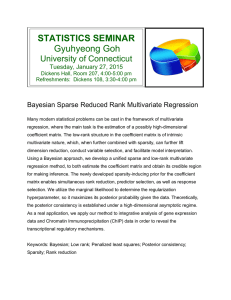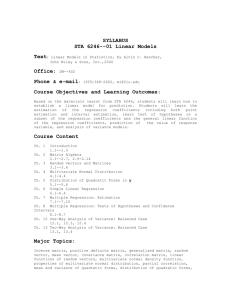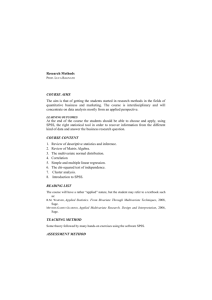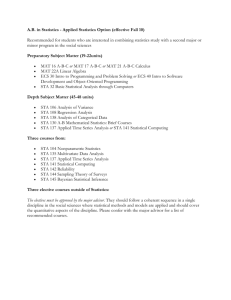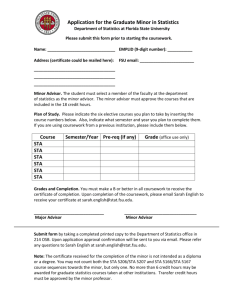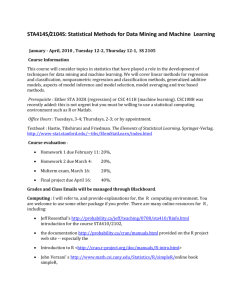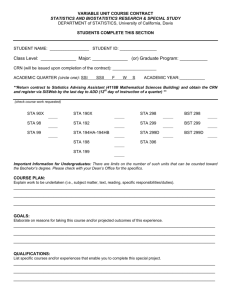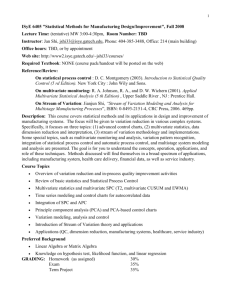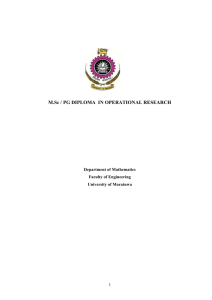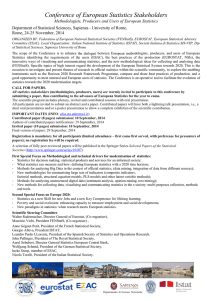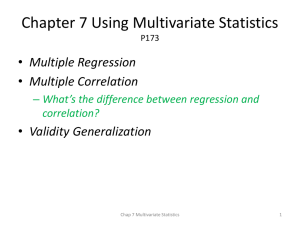9 Oct 2008 r
advertisement
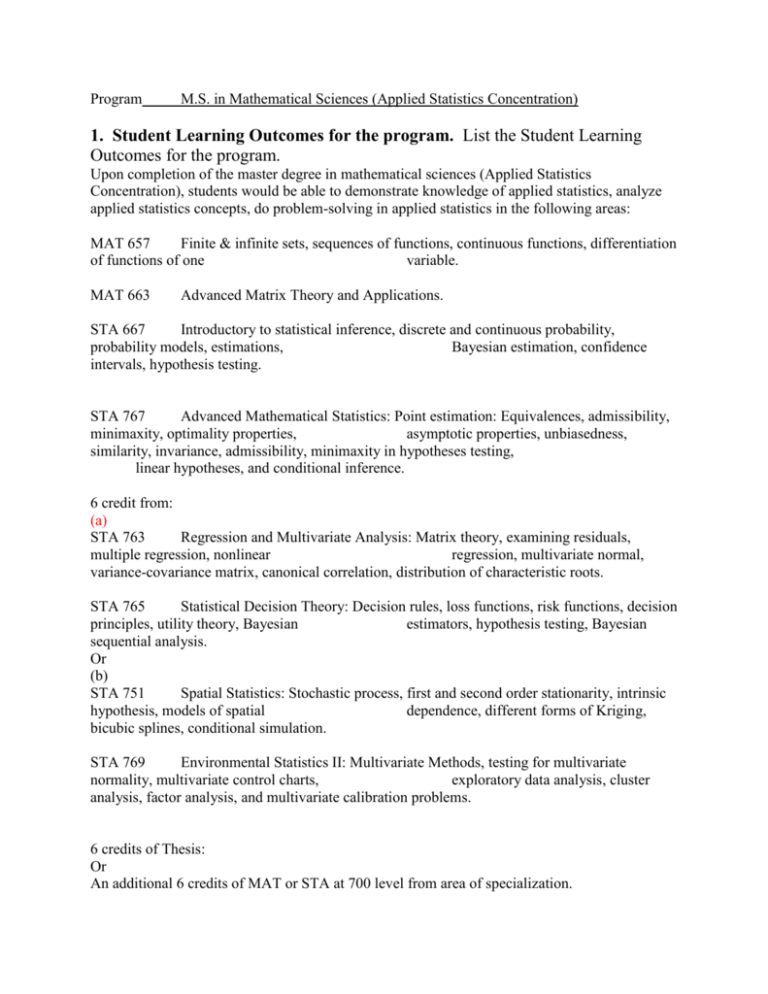
Program M.S. in Mathematical Sciences (Applied Statistics Concentration) 1. Student Learning Outcomes for the program. List the Student Learning Outcomes for the program. Upon completion of the master degree in mathematical sciences (Applied Statistics Concentration), students would be able to demonstrate knowledge of applied statistics, analyze applied statistics concepts, do problem-solving in applied statistics in the following areas: MAT 657 Finite & infinite sets, sequences of functions, continuous functions, differentiation of functions of one variable. MAT 663 Advanced Matrix Theory and Applications. STA 667 Introductory to statistical inference, discrete and continuous probability, probability models, estimations, Bayesian estimation, confidence intervals, hypothesis testing. STA 767 Advanced Mathematical Statistics: Point estimation: Equivalences, admissibility, minimaxity, optimality properties, asymptotic properties, unbiasedness, similarity, invariance, admissibility, minimaxity in hypotheses testing, linear hypotheses, and conditional inference. 6 credit from: (a) STA 763 Regression and Multivariate Analysis: Matrix theory, examining residuals, multiple regression, nonlinear regression, multivariate normal, variance-covariance matrix, canonical correlation, distribution of characteristic roots. STA 765 Statistical Decision Theory: Decision rules, loss functions, risk functions, decision principles, utility theory, Bayesian estimators, hypothesis testing, Bayesian sequential analysis. Or (b) STA 751 Spatial Statistics: Stochastic process, first and second order stationarity, intrinsic hypothesis, models of spatial dependence, different forms of Kriging, bicubic splines, conditional simulation. STA 769 Environmental Statistics II: Multivariate Methods, testing for multivariate normality, multivariate control charts, exploratory data analysis, cluster analysis, factor analysis, and multivariate calibration problems. 6 credits of Thesis: Or An additional 6 credits of MAT or STA at 700 level from area of specialization. Thesis Defense: Demonstrate the ability to successfully present results in both oral and written formats. Or Written Comprehensive exam: Based on degree requirements.

